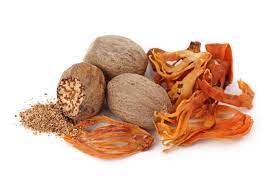The Exceptionally Tasty Applications of Mace in Cooking
Mace spice has a distinct, fragrant taste that is more nuanced and subtle than nutmeg spice. It is used for both savory and sweet dishes in many different cuisines across the globe. In India, mace spice is often used to provide a moderate and pleasant spiciness to meat meals including stews, soups, biryanis, and curries, as well as to sauces and marinades. As previously indicated, mace may be found in a variety of spice mixes, including curry powders, biryani masala, pumpkin spice, and garam masala.
Although this may be the most common usage of mace in Indian cuisine, other culinary traditions have also experimented with other applications for the spice. For instance, mace is a common baking spice in many European nations. It adds a warm, sweet taste to cakes, biscuits, pastries, and pies. In order to improve the taste and scent of hot drinks like chai tea, cider, or mulled wine, mace is also added. It adds a delicately warm taste to custards, puddings, and creamy sauces.
Advantages Of Mace Spice For Health
Similar to nutmeg, mace has a number of possible health advantages when used sparingly in cooking. Here are a few of the main health advantages of mace spice use.
Gastrointestinal health
Compounds in mace may aid with better digestion. It could help with bloating, gas, and indigestion relief. Additionally, it’s thought that mace encourages the release of digestive enzymes, which might speed up the digestion of meals.
Anti-inflammatory properties
Mace powder has anti-inflammatory properties because it contains bioactive molecules with these properties. These qualities could aid in lowering bodily inflammation and easing the signs and symptoms of inflammatory diseases.
Nutrient Content:
Vitamins A, C, and B-complex vitamins are among the important nutrients found in mace or javitri, along with manganese, copper, and iron. These nutrients are essential for many body processes, including iron metabolism, antioxidant protection, and immunological support.
Also read: Explore the several kinds of cumin seeds
Oral Health:
By preventing the formation of dangerous germs in the mouth, the antibacterial qualities of mace may help improve oral health by averting gum disease and tooth decay.
Cognitive Function:
Some of the components in mace may be beneficial to the health of the brain. It is thought that by strengthening neuronal networks, it can improve memory and cognitive performance.
Respiratory Health:
Because of its expectorant qualities, mace has been used in traditional medicine to help treat respiratory conditions including coughs, colds, and congestion.
Natural antibacterial qualities
Natural antibacterial qualities found in mace may aid in the fight against certain germs and fungus while bolstering the immune system as a whole.
Antioxidant Activity:
The spice contains antioxidants that may help shield cells from oxidative damage and counteract dangerous free radicals in the body.
Conclusion
Mace, a fragrant spice with a distinct, subtle taste, is used in various cuisines worldwide for savory and sweet dishes. In India, it is used to add spiciness to meat dishes, sauces, and marinades. Mace is also used in baking spices in European countries, adding a warm, sweet taste to cakes, biscuits, pastries, and pies. It is also added to hot drinks like chai tea, cider, or mulled wine. Mace has several health advantages, including improving gastrointestinal health, anti-inflammatory properties, and nutrient content. Its antibacterial properties prevent the formation of harmful germs in the mouth, improving oral health, and improving cognitive function. Mace is also used in traditional medicine to treat respiratory conditions, and its natural antibacterial qualities help fight germs and fungus. It also contains antioxidants that protect cells from oxidative damage.
